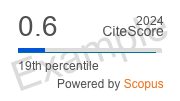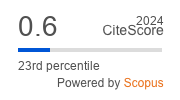EFFICIENCY OF TRAINING PROGRAM IN PATIENTS WITH MYOCARDIAL INFARCTION IN ANALYZING THE MEDICAL AND SOCIAL FACTORS OF ADHERENCE TO TREATMENT
https://doi.org/10.29001/2073-8552-2017-32-3-56-59
Abstract
Purpose. We aimed to estimate the efficiency of a training program in patients with myocardial infarction taking into account the medical and social factors of formation of adherence to treatment. We examined 92 patients with myocardial infarction (MI) with ST-segment elevation, mean age of 65.5±6.8 years, who were discharged from hospital and followed-up by the cardiologists of the Kemerovo Cardiology Dispensary. We estimated the adherence to treatment using S.V. Davydova method prior to and after a completion of the training. The leading reasons for reduced adherence to treatment in patients with MI were insufficient level of medical and social awareness and dissatisfaction with the regimen of the prescribed therapy. On the background of the training program a detection of negative factors of adherence formation decreased 3 times and the prevalence of positive factors increase 1.5 times. Medical and social awareness increased by 45.8%; a satisfaction with the regimen of the prescribed therapy increased by 45.7%; and a satisfaction with the results of the conducted therapy increased by 37.1%. The integral indicator of the adherence to treatment in patients with a recurrent MI prior to the training scored +4.39±0.09 and corresponded to a moderate positive compliance. On completion of the training program, a double increase in the adherence to treatment was registered (score +8.11±1.23; p=0.0000). The training program for the patients with MI based on the principle of continuity of inpatient and outpatient stages of patients’ management improves the adherence to treatment at an increase in medical and social adaptation and awareness of patients, their satisfaction with the regimen and the results of the conducted therapy.
About the Authors
E. V. GorbunovaРоссия
D. Yu. Sedykh
Россия
O. S. Krestova
Россия
I. A. Bryukhanova
Россия
References
1. Оганов Р.Г., Шальнова С.А., Калинина А.М. Профилактика сердечно-сосудистых заболеваний: руководство. — М. : ГЭОТАР-Медицина, 2009. — 216 с.
2. Werlemann В.С., Offers E., Kolloch R.H. Compliance problems in therapy resistant // Hypertension. — 2004. — Vol. 3. — P. 271–275.
3. Горбунова Е.В., Горшкова Т.В., Романова М.П., Макаров С.А. Эффективность обучающей программы в повышении приверженности к лечению у пациентов с протезированными клапанами сердца // Клинич. медицина. — 2012. — № 11. — С. 16–19.
4. Галявич А.С., Давыдов С.В. Качество жизни и приверженность к лечению больных гипертонической болезнью // Казанский мед. журн. — 2001. — № 3. — С. 198–202.
5. Бирюкова Л.А. Приверженность к лечению больных ишемической болезнью сердца с болевой и безболевой формой // Сиб. мед. журн. (Иркутск). — 2008. — № 4. — С. 75–77.
6. Яхонтов Д.А., Коростелева Е.В. Особенности течения и приверженность к лечению при различных вариантах стабильной стенокардии в сочетании с артериальной гипертензией у жителей г. Новосибирска // Комплексные проблемы сердечно-сосудистых заболеваний. — 2014. — № 4. — С. 13–18.
7. Погосова Г.В., Колтунов И.Е., Рославцева А.Н. Улучшение приверженности к лечению артериальной гипертонии и ишемической болезни сердца — ключевое условие снижения сердечно-сосудистой смертности // Кардиология. — 2007. — № 3. — С. 79–85.
8. Гуревич К.Г. Комплайнс больных, получающих гипотензивную терапию // Качественная Клиническая Практика. — 2003. — № 4. — C. 53–58.
9. Jokisalo E., Enlund H., Halonen P. Factors related to poor control of blood pressure with antihypertensive drug therapy // Blood Press. — 2003. — Vol. 1. — P. 49–55.
10. Хохлова А.Л., Лисенкова Л.А., Раков А.А. Анализ факторов, определяющих приверженность к антигипертензивной терапии // Качественная Клиническая Практика. — 2003. — № 4. — С. 59–66.
11. Ragot S., Sosner P., Bouche G. Appraisal of the knowledge of hypertensive patients and assessment of the role of the pharmacists in the management of hypertension results of a regional survey // J. Hum. Hypertens. — 2005. — Vol. 7. — P. 577–584.
12. Давыдов С.В. Артериальная гипертония: медико-демографическая ситуация, приверженность к лечению, качество жизни : автореф. дис. … канд. мед. наук. — Казань, 2004. — 17 с.
13. Кондради А.О., Полуничева Е.В. Недостаточная приверженность к лечению артериальной гипертонии: причины и пути коррекции // Артер. гипертензия. — 2004. — № 3. — С. 137–143.
Review
For citations:
Gorbunova E.V., Sedykh D.Yu., Krestova O.S., Bryukhanova I.A. EFFICIENCY OF TRAINING PROGRAM IN PATIENTS WITH MYOCARDIAL INFARCTION IN ANALYZING THE MEDICAL AND SOCIAL FACTORS OF ADHERENCE TO TREATMENT. Siberian Journal of Clinical and Experimental Medicine. 2017;32(3):56-59. (In Russ.) https://doi.org/10.29001/2073-8552-2017-32-3-56-59
JATS XML




.png)





























